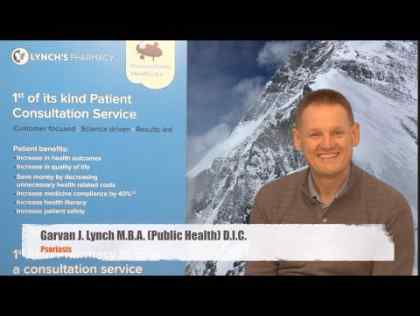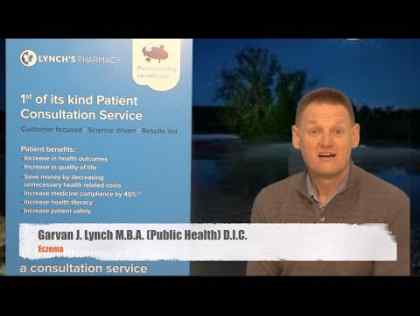Dovobet ointment contains two active ingredients, betamethasone and calcipotriol.

What is it used for?
- Stable plaque psoriasis vulgaris.
How does it work?
- Dovobet ointment contains two active ingredients, betamethasone and calcipotriol.
- Calcipotriol is a medicine that is a derivative of vitamin D. When applied to the skin it works by reducing the production of skin cells.
- In psoriasis, the scaling and thickening of the skin and the appearance of raised plaques are the result of excessive skin cell production. Calcipotriol reduces the excessive skin cell production and promotes normal skin cell growth. This helps flatten and clear the psoriasis plaques.
- Betamethasone is a type of medicine called a topical corticosteroid. Corticosteroids are medicines used for reducing inflammation. Skin inflammation in psoriasis occurs due to the irritation of the skin, and is caused by the release of various substances important in the immune system.
Not to be used in
- Erythrodermic, exfoliative or pustular psoriasis.
- People with disorders of calcium metabolism in the body.
- Severe liver disease.
- Severe kidney disease.
- Bacterial skin infections, such as impetigo.
- Fungal skin infections, eg athlete's foot, ringworm, candida skin infections.
- Viral skin infections such as chickenpox or herpes simplex.
- Skin infected with parasites, eg scabies.
- Tuberculosis affecting the skin.
- Skin sores caused by syphilis.
- Acne vulgaris.
- Acne rosacea.
- Inflammatory rash around the mouth (perioral dermatitis).
- Dryness and fish skin-like scaling of the skin (ichthyosis).
- Stretch marks.
- Areas of skin that are very thin and fragile or have broken veins.
- Skin ulcers or wounds.
- Itchy skin around the genitals or anus.
Dovobet ointment is not licensed for children and adolescents under eighteen years of age. However, it may be used by off licence by specialists to treat psoriasis in children over 12 years of age.
This medicine should not be used if you are allergic to any of its ingredients. Please inform your doctor or pharmacist if you have previously experienced such an allergy.
If you feel you have experienced an allergic reaction, stop using this medicine and inform your doctor or pharmacist immediately.
Pregnancy and breastfeeding
Certain medicines should not be used during pregnancy or breastfeeding. However, other medicines may be safely used in pregnancy or breastfeeding providing the benefits to the mother outweigh the risks to the unborn baby. Always inform your doctor if you are pregnant or planning a pregnancy, before using any medicine.
- This medicine should not be used during pregnancy unless considered essential by your doctor. If it is prescribed by your doctor it should not be used on large areas of skin, underneath airtight dressings, or for prolonged periods of time. Consult your doctor for further information.
- This medicine should not be used during breastfeeding unless considered essential by your doctor. If it is prescribed by your doctor it should not be used on large areas of skin, underneath airtight dressings or for prolonged periods of time. If your doctor says you can use this medicine while breastfeeding you should not apply it to the breast area.
Side effects
Medicines and their possible side effects can affect individual people in different ways. The following are some of the side effects that are known to be associated with this medicine. Just because a side effect is stated here, it does not mean that all people using this medicine will experience that or any side effect.
Common (affect between 1 in 10 and 1 in 100 people)
- Itching.
- Rash.
- Burning sensation of skin.
Uncommon (affect between 1 in 100 and 1 in 1000 people)
- Skin pain or irritation in area of use.
- Inflammation of the hair follicles (folliculitis).
- Inflammation of the skin (dermatitis).
- Reddening of skin.
- Changes in skin pigmentation in area of use.
- Worsening of psoriasis.
Rare (affect between 1 in 1000 and 1 in 10,000 people)
- Pustular psoriasis.
Unknown frequency (recognised side effects of the individual ingredients)
- Skin thinning.
- Stretch marks.
- Groupings of fine blood vessels becoming prominent under the skin (telangiectasia).
- Increased level of calcium in the blood or urine (especially if the recommended dose is exceeded).
- Abnormal reaction of the skin to light, usually a rash (photosensitivity).
- Side effects on the rest of the body (such as decreased production of natural steroid hormones by the adrenal glands, cataracts, raised pressure in the eye and infections) are rare, but can occur if corticosteroids are absorbed into the bloodstream in sufficient quantities. Absorption is more likely in elderly people, with prolonged use and with application to large areas of skin, broken skin, or under dressings. See warning section above.
The side effects listed above may not include all of the side effects reported by the medicine's manufacturer.
For more information about any other possible risks associated with this medicine, please read the information provided with the medicine or consult your doctor or pharmacist.
How can this medicine affect other medicines?
- This medicine is not known to affect any other medicines. However, as with all medicines, it is important to tell your doctor or pharmacist what medicines you are already using, including those bought without a prescription and herbal medicines, before you start treatment with this medicine. Similarly, check with your doctor or pharmacist before using any new medicines while using this one, to ensure that the combination is safe.
- Since this medicine contains a potent corticosteroid, you should not use any other corticosteroid creams or ointments (eg hydrocortisone) while using it, as this may increase the risk of side effects. Ask your doctor or pharmacist for further advice.
- The manufacturer of this medicine has not studied its use with other medicines applied to the same area of skin at the same time. However, if you are using other medicines or moisturisers on the same area of skin, it is best to leave several minutes between applying each product to allow them time to be absorbed and avoid them mixing on the skin.
References:
http://www.mhra.gov.uk/home/groups/spcpil/documents/spcpil/con1404109855642.pdf
http://www.netdoctor.co.uk/medicines/skin-and-hair/a8348/dovobet-ointment-betamethasone-calcipotriol/
https://www.psoriasis-association.org.uk/forums/topic.aspx?ID=162



